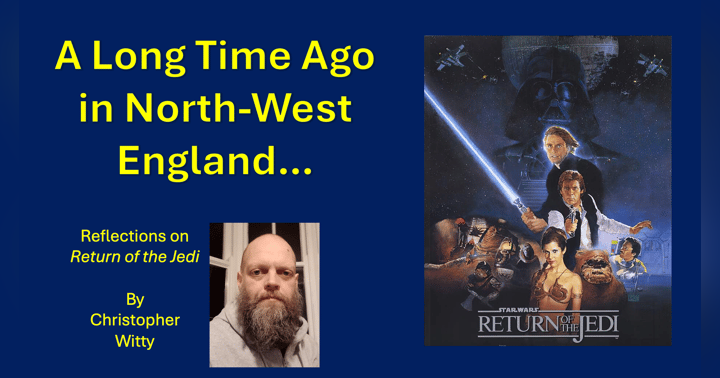Stand By Me: Stephen King Gets Real

Stephen King is very well known as a supernatural horror novelist, and there is really no mystery as to why. His early career is a greatest hits of weird literature. His first three published books were Carrie, ‘Salem’s Lot, and The Shining. Honestly, he could have quit there, but he didn’t. Instead, he published a giant doorstop of a book next, The Stand, which is generally accepted as one of the great super-sized books of all time. (I’ve occasionally thought The Stand was my favorite of his, alternating in first place with IT. Now I’m not really sure because there’s so much to choose from, but The Stand is a magnum opus for sure.)
I consider myself a pretty huge Stephen King fan. Not that this is unique – there are only millions of us. I definitely got into his stuff because it was scary, but it was also well written, with deeply real characters. As I’ve mentioned before, my mom worked at a library when I was in my tweens/early teens, and as the circulation desk person, she could basically get me my book fix whenever, much to the likely chagrin of every other Canton Library patron who wanted to be first on the list for new Stephen King books. I was probably a little young to be reading this stuff, but I was mature for my age and I grew out of kids’ books quite early. My first year in Pickens, Mississippi, when I was ten, we lived right across from this trailer that served as the town library, and I believe I might have actually read every single book in the kids’ section. My mom knew I was a huge reader and had similar taste to her, so one day she handed me this huge dictionary-looking book and said, you’ll love this. It was IT, and once I started to read, IT really was it for me, and I didn’t read anything outside of school except Stephen King until I marched through his entire catalog at the time. [1]
I attacked the Stephen King novels first, since I think part of me believed that longer work is superior to shorter.[2] If you know Stephen King, you know this means I had a whole lot of words to make it through. Our man is not one for leaving much unsaid. So it took a while for me to work my way around to short stories, and even longer to work my way around to novellas. I didn’t really even know what a novella was (maybe I was 14 at this point), and I suspect my take on it was that a novella was a book that wasn’t quite good enough to be a whole book, so you would take a few of them and stitch them together to make a “real” book. Imagine my surprise when I finally read Different Seasons.
Different Seasons is a four-novella collection Stephen King published in the early 80s. Each novella is assigned to a season, and only the fourth story (for winter) could really be considered traditional horror. The first three stories, on the other hand, are quite out of the ordinary for Stephen King. All three have since been made into films, and two of the films were massively successful both commercially and critically.
The first of the novellas, for the spring season, is “Rita Hayworth and the Shawshank Redemption,” which became the film The Shawshank Redemption, which has been number one on the IMDb Top 250 Films of All Time since 2008. The movie is a brilliant and faithful adaptation of a truly fantastic story. I would venture to say that the novella is among the very best things Stephen King ever wrote.
The summer story is “Apt Pupil,” which was made into a film starring Ian McKellen (one of my favorite actors from well before he became Gandalf, since he started as a Shakespearean and was in the RSC). There is a bit of a horror element to this story and film, but it’s not supernatural. Rather, it’s the horror of what people are capable of doing to each other. It’s the story of two sadists—one whose life is winding down and one who is just getting started—who are exactly the wrong type of people to end up coming together. The film wasn’t as successful as The Shawshank Redemption, but the subject matter isn’t hopeful and feel-good, so I would attribute its lack of success to its relative lack of appeal. Watching a wronged man spectacularly escape from prison is just a lot more fun than watching an old Nazi get tortured by a wannabe teen Nazi. Even so, the novella is another successful, well-written, non-horror genre story in a great collection.
The autumn story is “The Body,” which became the absolute classic coming of age film Stand By Me. The movie is another very faithful adaptation of the story, which is one of the best ever of the coming of age genre. Not just for the time it was published or the time it was set, but all time. Ever. Yes really. It captures something completely undefinable about growing up, and how there is this turning point where you go from being a child to being an adult. In the novella, that turning point is that the narrator and his friends go to look at a dead body in the woods. It’s a pretty weird turning point, but it makes total sense in the context of the story, and the characters are so well written and familiar that it feels like you’re right there with them. I don’t know how Rob Reiner managed to take that story and translate it into a film that does exactly the same thing, but in my opinion, just comparing the films Stand By Me and The Shawshank Redemption as adaptations, I would personally rate Stand By Me just a notch higher. The Shawshank Redemption is a better movie overall, but Stand By Me manages to faithfully retell the story and also capture the spirit of the novella perfectly. It is moving, nostalgic, and completely self aware, in the best possible ways.
This is all to say that, in spite of his pigeonholing as a horror novelist, and in spite of some of the recurring issues in his fiction[3], I consider Stephen King to be among the best of writers. Not just because I like his writing, but because he is so talented at capturing our humanity. Sometimes he does this through supernatural horror, but sometimes he does it through just a damn great story. I attribute it mainly to the natural style and deeply realized characters in his work. I am so thankful that he is still actively releasing new material on a semi-frequent basis. I’m thankful that he and his wife (also a talented writer) birthed yet another great writer who explores the same dark terrain that King treads with such frequency; Joe Hill’s work is different than his dad’s—a lot bleaker at times, fair warning—but it’s so worth reading. His first novel Heart-Shaped Box is exceptionally great, and it’s made it onto my re-readable list. Back to Stephen King—I’m also grateful that King made enough of a success within the horror genre that his publishers decided to give his straight fiction a chance and published a book like Different Seasons. Without that, we wouldn’t have Stand By Me, The Shawshank Redemption, or Apt Pupil.[4]
Comfort Films 17: Stand By Me (Released January 21, 2022)
[1] I first read IT when I was 11 – the same age as the kids in the book. Interestingly enough, I read it 27 years later, when I was the same age as the adults, much by accident. I probably hadn’t read it for 15 years or more, but when I turned 38/39, I picked it up like I sensed something evil returning to a sewer near me.
[2] I definitely do not feel this way now. It can be much more difficult to write a phenomenal short story. Near impossible to write a top tier poem. The fewer words you get, the better they have to be.
[3] I am very much thinking of the way he writes Black characters, which I don’t believe is intentionally racist, but comes across as very heavy on the “magical” trope as well as far too caricatured—even in his more recent work like the Bill Hodges series.
[4] And lest I forget to mention it, the winter story from Different Seasons, which is a definite supernatural horror story, “The Breathing Method,” is also masterful in its own right. I find it to be reminiscent of Edgar Allan Poe’s work, particularly “The Predicament,” which was the first Poe tale I ever read, at age 6. Edgar Allan Poe’s short stories are the first thing I remember my mom recommending me to read, when I was in first grade. (So she was already corrupting me 5 years before she starting recommending I read Stephen King. Thanks, Mama!) I remember lying in the top bunk with the hefty Poe collection and a dictionary for easy reference to check words I didn’t know, like “decapitation.”







